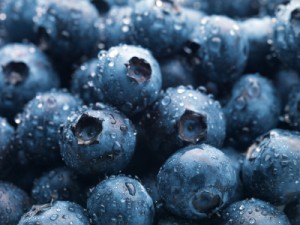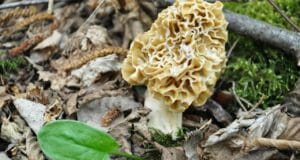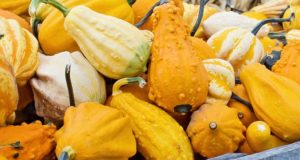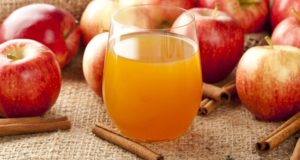 In this modern age of convenience, it has become a practice taken for granted that, when one is hungry, one can simply go to any number of restaurants or fast food joints, and have someone else quickly prepare tasty yet questionably healthy food for them to eat. This may fill the belly for that meal, indeed overfill it. But what do you do later that day or the next day? For the average person, you go to the grocery store, like most. Even if your store has the best prices around, their foods are processed and even their ‘fresh’ produce is laden with preservatives, chemicals and who knows what else. This will not stand.
In this modern age of convenience, it has become a practice taken for granted that, when one is hungry, one can simply go to any number of restaurants or fast food joints, and have someone else quickly prepare tasty yet questionably healthy food for them to eat. This may fill the belly for that meal, indeed overfill it. But what do you do later that day or the next day? For the average person, you go to the grocery store, like most. Even if your store has the best prices around, their foods are processed and even their ‘fresh’ produce is laden with preservatives, chemicals and who knows what else. This will not stand.
Variety is the spice of life, as is often touted, though no amount of variety will avail you if you don’t eat in moderation. Too much or too little of any one thing can be detrimental to your health. In that respect, grains, dairy, protein, vegetables and fruit are all beneficial when consumed as part of a balanced diet. And in most cases, you can grow those things on your own. You probably don’t have the thousands of acres boasted by some farmer out in Kansas, so you ultimately have to be choosy about what you plant and when. Living off the grid, seeds are far cheaper to purchase than the end product, so a little foresight goes a long way. Additionally, if you have any health issues or food allergies, this can further limit your options, or at best, force you to get creative about what you grow and when. Certain crops can offer up natural remedies too, or food with properties that aid in healing or at least easing certain symptoms.
Regardless of the fact that you can find virtually any fruit or vegetable at your store year round, the truth is that they are seasonal, and of course shipped from all over. Do you on occasion find produce you’ve purchased to come from an area where it would not flourish or even be available? For example, does the grocery store sell oranges from Nevada or apples that came from Florida? Indeed, it’s better not to have to worry about such oddities and given that you are trying to be self sustaining at some point, or perhaps you already are, here is a list of some of the things you may be able to grow, and how it benefits you.
Berries: The vitamin C contained in such delectable fruits as strawberries, blueberries, raspberries can ease the chronic pain caused by deteriorating joints. Vitamin C is a good source for the formation of collagen, which is a key component in the formation of cartilage and bone. Other fine sources of vitamin C include cauliflower, various greens, tomatoes, broccoli, spinach, kiwi fruit, celery and asparagus
Fish: If you live in an area with year-round or seasonal fishing, then you have a ready supply of niacin. Tuna, salmon and halibut are great sources of niacin. In addition to fish, chicken and venison contain it as well.
Ginger: Not only does it add a bit of zing to your dishes, but ginger has been shown to have a widearray of uses, medically speaking. It can alleviate pain and discomfort, ease the discomfort of heartburn, ease with congestion associated from asthma and allergies and promote kidney health in those with diabetes.
Oatmeal (plain): Unflavored/unadorned oatmeal is perfect for a bellyache. Whether you’re sick or suffering from a spot of indigestion, oatmeal, along with water can soothe the pain of a bellyache. Avoid dairy or heavy foods – those will just make it worse. If you have any other symptoms, such as diarrhea, wait for it to pass before moving onto stuff like crackers. Easy-to-digest foods, such as applesauce, bananas or rice can also go a long way towards curing that upset tummy.
Tea: Growing and brewing your own tea is not only a satisfying prospect (and delicious) but tea also contains cancer-fighting antioxidants. Some teas may lack the polyphenols present in other teas but they possess compounds that relax and soothe the drinker. Why else do you think that so many folks love to unwind with a delicious cup or glass of tea after a long day?
If you are concerned about, or suffer from liver problems, you would do well to consider a diet rich in complex carbohydrates and protein as well as antioxidants. Examples of these foods which work wonders are brown rice, beans, lentils and eggs. For those concerned about the health of their skin and/or hair, living off the grid doesn’t mean you have to go without radiant skin and silky locks. Dark green vegetables, like spinach, offer up iron and calcium, in addition to vitamins A (and C as seen above). Some nuts are also a great way to preserve the look and health of your hair. Cashews, pecans, almonds and walnuts are a prime source of zinc, and walnuts contain a special omega-3 fatty acid (which you might link to fish primarily) that is purported to have a beneficial effect on the health of hair.
Self-reliance, whether environmental, medical, financial or just ‘personal’ can have a profound effect not only on your life, but also on the world as well. “But I’m just one person,” you say. True, but that’s a step in the right direction. We’re not advocating you go and crusade for off-the-grid living for everyone. Some folks just couldn’t hack it. For the brave and resourceful souls such as yourself who can and do, it is enough to simply be quietly proud about the choice you have made.
Living off-grid doesn’t mean your options are limited, as some might think. You don’t need processed foods, processed power, or processed medicine. In many cases, you can provide everything that you need. It’s more work, but the rewards are immeasurable, especially when you compare the time and effort to preserve your way of life and your health, knowing you succeeded – versus going down to the grocery store and just buying any old thing for $5.
Other articles in this issue:
- Managing Madness
- Hijacking the Next Generation – Lessons From Nazi Germany
- Fire in the Sky: The Threat of Electromagnetic Pulse Action on the Grid
If you liked this article you may be interested in this product from our sponsor.

 Off The Grid News Better Ideas For Off The Grid Living
Off The Grid News Better Ideas For Off The Grid Living



